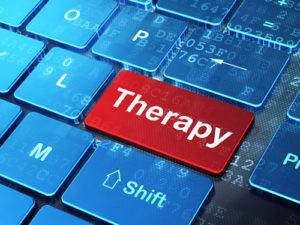Have you heard about TAO Connect, an online therapy platform? eCampus News was curious about how it works, so we spoke with Nancy Zlatkin, Psy.D., a psychologist at Florida International University (FIU). Zlatkin, has been using the online program for close to five years.
Q: How long has FIU been offering therapy via TAO Connect?
FIU Counseling and Psychological Services (CAPS) has been offering TAO treatment since January 2014.
Q: How many students have taken advantage of the services?
As of September 2018, we’ve had 366 students use the services.
Q: Why did you feel the need to offer this benefit to students?
Our student population consists of both on-campus and online students. Because of this, it can be difficult to find supplemental counseling services that effectively reach every student and can be personalized to their own needs. While CAPS had developed several programs to empower students to take control of their own behavioral health, we were looking for more versatility in how our services were delivered.
Offering TAO to students was aligned with CAPS’ plan to increase parity in services between traditional students and online students. Furthermore, TAO had been shown to be effective for college students presenting to college counseling centers with specific issues. Students are now able to use tools such as anxiety monitoring logs, where they can report episodes of anxiety and apply lessons they’ve learned, as well as engage in videoconferences with their CAPS therapist in between face-to-face sessions.
As TAO developed, it demonstrated versatility by being available through a self-help option as well as integration into course instruction (e.g., Freshman Experience courses). For the students who have high-level motivation and lower-level issues such as mild anxiety, the self-help option lets them work at their own pace, on their own time. Essentially, the platform’s customization has proven to be beneficial for a wide array of behavioral scenarios.
Q: Do you have any metrics about its effectiveness?
We evaluated TAO’s effectiveness using the Behavioral Health Measure 20, or the BHM-20. This is a 21-item scale-based measure that involves four major sub-scales: global mental health, well-being, life functioning, and symptoms. These can be further broken down into anxiety, depression, alcohol and drug use, bipolar disorder, eating disorder, and suicide monitoring. When reviewing BHM-20 results at FIU after implementing TAO, students generally appear to report improvement in mood, anxiety, symptoms, and well-being. The greatest improvements also tend to occur in the first four sessions, emphasizing TAO’s effectiveness in providing information students can immediately apply to their lives.
Q: What advice would you give to other universities that may be thinking of working with TAO Connect (or another provider of online therapy)?
Investing in technology is the first step, but you have to customize it to your own student body to make it effective. Consider ways to involve departments outside of your counseling center to maximize opportunities to benefit students. Universities should be flexible with the ways TAO may be used to make the learning modules available to students through different avenues when appropriate (e.g., CAPS, Freshman Experience courses, athletics, etc.). You should also take time to train clinical staff regarding tele-behavioral practice in order to optimize clinician engagement.
- 4 lessons learned from a successful badging initiative - May 23, 2019
- 6 tips for reaching adult students - May 20, 2019
- How can higher-ed better prepare students to enter the workforce? - April 29, 2019

